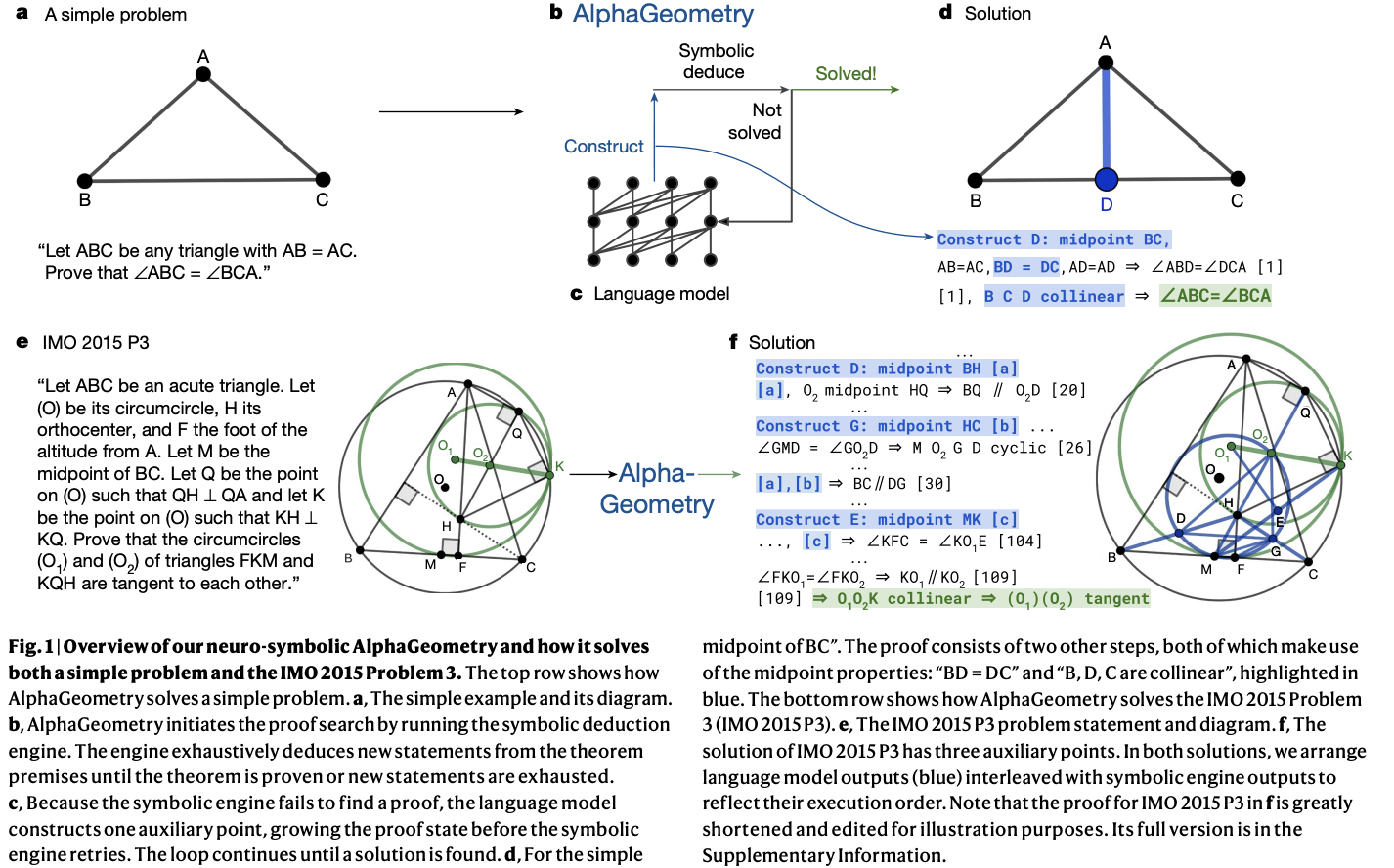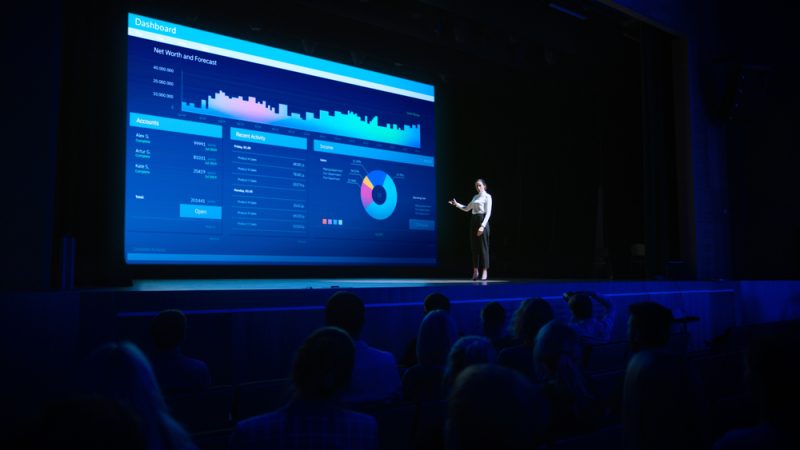In a recent research endeavor, a group of scientists from Google DeepMind has unveiled AlphaGeometry, an Artificial Intelligence (AI) system capable of tackling geometry Olympiad queries with a proficiency nearly on par with that of a human gold medallist. The ability to solve Olympiad-level mathematical theorems is a significant feat that showcases advanced automated reasoning skills, particularly within the challenging realm of pre-university mathematics.
These problems, renowned for their complexity, serve as a benchmark for human-level cognition. Nevertheless, translating human arguments into formats that machines can validate using existing Machine Learning methods, especially in mathematical domains, poses challenges in terms of time and resources. Geometry, with its intricate translation nuances, presents an additional hurdle, resulting in a scarcity of training data for Machine Learning models.
To address these challenges, AlphaGeometry was developed as a theorem prover specifically designed for Euclidean plane geometry. It employs a novel approach by eschewing human demonstrations and instead creating a vast training dataset by synthesizing numerous theorems and proofs across varying levels of difficulty. This neuro-symbolic system integrates a fully trained neural language model generated from scratch using the synthetic data. A symbolic deduction engine leverages this model as a navigational aid through the intricate web of branching points in complex mathematical conundrums.
The synergy between AlphaGeometry’s language model and symbolic deduction engine is meticulously orchestrated. The language model plays a pivotal role in guiding the symbolic deduction engine towards logical solutions for geometry problems. Given that Olympiad geometry quandaries frequently involve diagrams that necessitate additional geometric constructions for easier resolution, such as points, lines, or circles, AlphaGeometry’s language model anticipates the most beneficial new constructs to incorporate. These predictions serve as valuable cues for the symbolic deduction engine, enabling it to extrapolate additional information about the diagram and move closer to the solution.
AlphaGeometry underwent evaluation on the IMO-AG-30 benchmark, comprising 30 classical geometry questions adapted from the International Mathematical Olympiad (IMO) competitions. Impressively, it outperformed baseline approaches incorporating language models like GPT-4 and Wu’s technique, which were previously considered state-of-the-art geometry theorem provers.
On the IMO-AG-30 benchmark, AlphaGeometry exhibited its prowess in solving intricate geometry problems, achieving a success rate of 25 out of 30 questions. Its problem-solving capability is akin to that of an average International Mathematical Olympiad (IMO) gold medallist.
One notable feature of AlphaGeometry is its production of human-readable proofs, enhancing the interpretability of its solutions. Apart from successfully solving every geometry problem in the IMO contests from 2000 to 2015 under expert human scrutiny, AlphaGeometry also uncovered a more generalized version of a translated IMO theorem from 2004. This showcases AlphaGeometry’s adaptability and proficiency in tackling challenging mathematical problems, thereby advancing the automation of reasoning in the upper echelons of mathematical competition.
In summary, AlphaGeometry stands as a groundbreaking achievement, being the first computer program to demonstrate superior effectiveness in proving theorems related to Euclidean plane geometry compared to the average IMO participant.
Check out the Paper and Github for further insights into this research. All credit for this groundbreaking project goes to the dedicated researchers involved. Also, remember to stay updated by following us on Twitter and joining our vibrant communities on ML SubReddit, Facebook, Discord Channel, and LinkedIn Group.
If you appreciate our efforts, you’ll surely enjoy our newsletter.

Tanya Malhotra, a final-year undergraduate student at the University of Petroleum & Energy Studies, Dehradun, is pursuing a BTech in Computer Science Engineering with a specialization in Artificial Intelligence and Machine Learning. She is a passionate Data Science enthusiast with strong analytical and critical thinking skills, coupled with a keen interest in honing new abilities, leading teams, and orchestrating work systematically.










